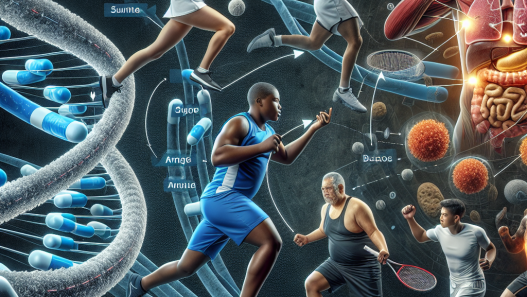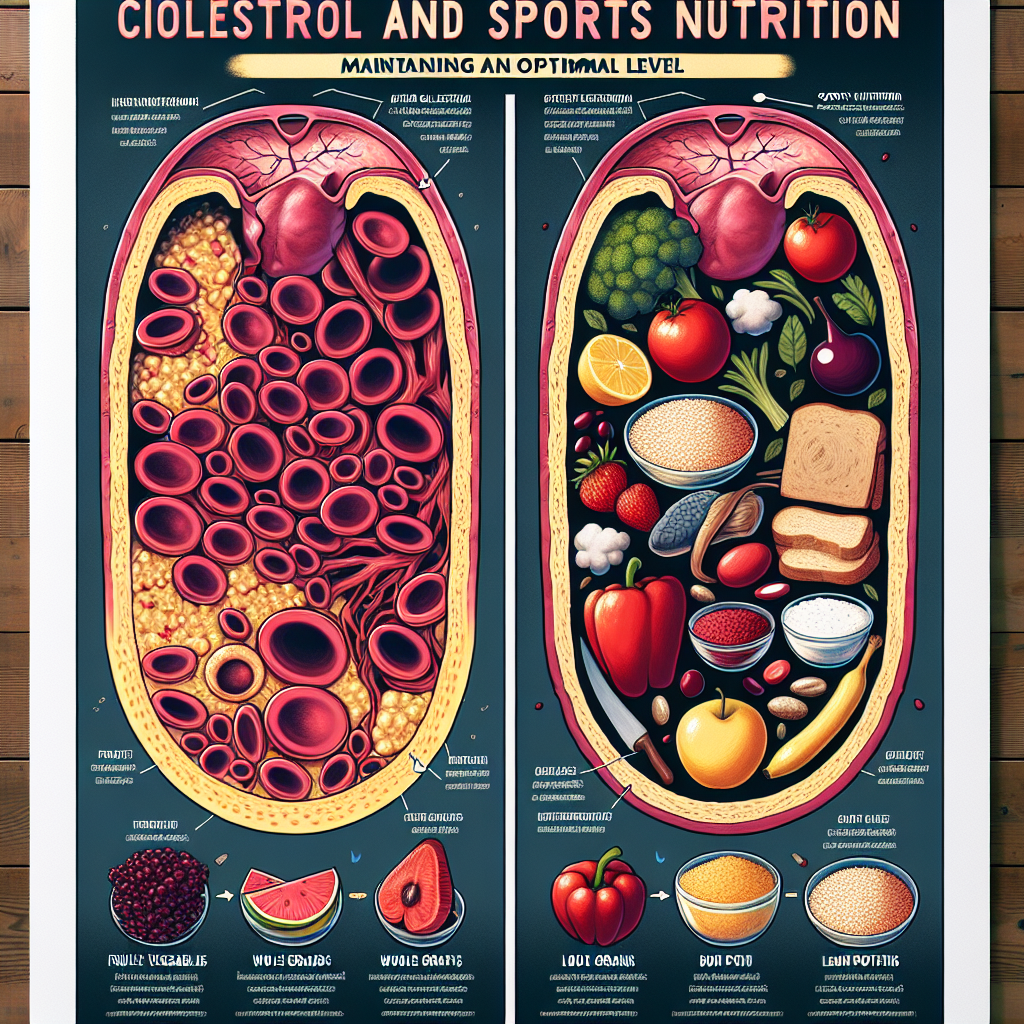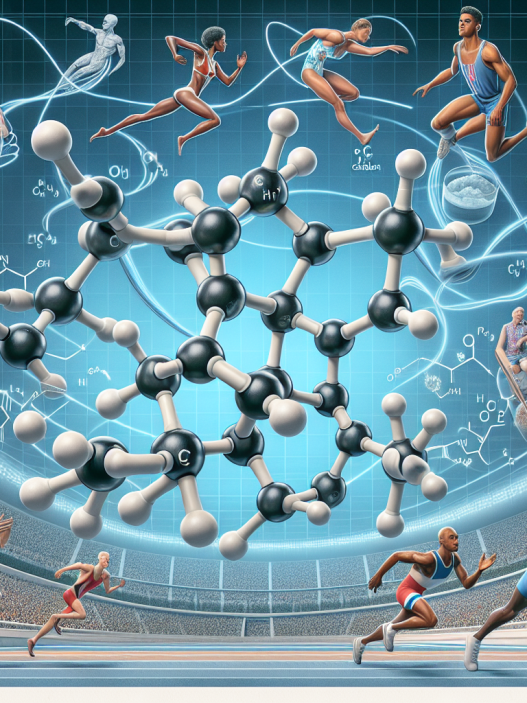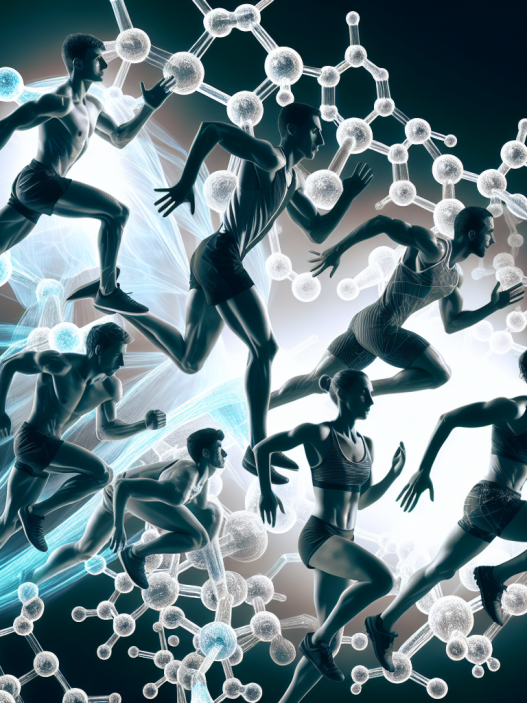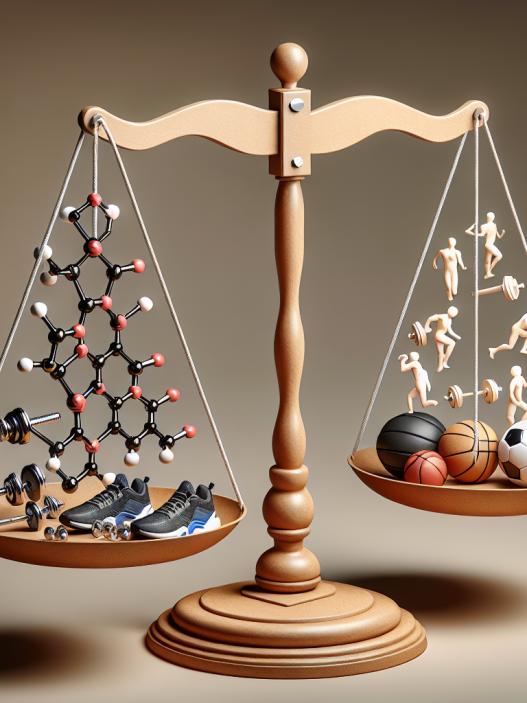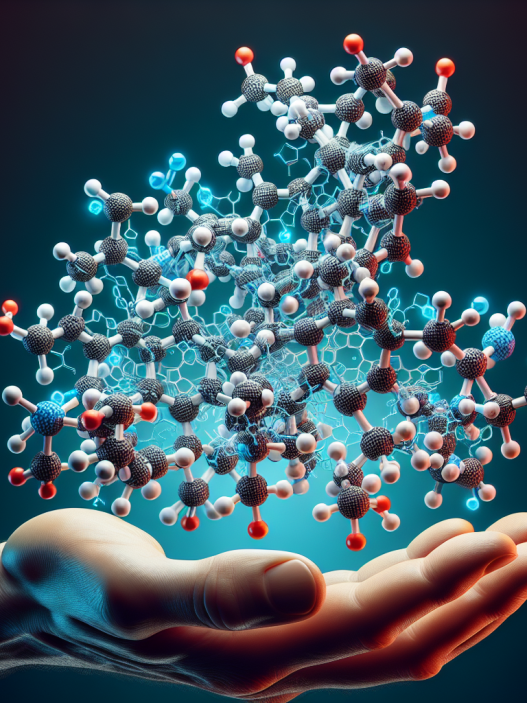-
Table of Contents
Cholesterol and Sports Nutrition: Maintaining an Optimal Level
Cholesterol is a type of fat that is essential for the proper functioning of our body. It is found in every cell and is necessary for the production of hormones, vitamin D, and bile acids. However, high levels of cholesterol in the blood can increase the risk of heart disease and stroke. This is why maintaining an optimal level of cholesterol is crucial for overall health and well-being.
The Role of Cholesterol in Sports Performance
In the world of sports, cholesterol has often been portrayed as the enemy. Athletes are often advised to avoid foods high in cholesterol, such as eggs and red meat, in order to maintain a healthy level. However, recent research has shown that cholesterol plays a vital role in sports performance.
Cholesterol is a precursor to testosterone, a hormone that is essential for building muscle mass and strength. Testosterone also plays a role in increasing red blood cell production, which can improve endurance and performance. In fact, a study by Volek et al. (2016) found that athletes with higher levels of cholesterol had better muscle strength and power compared to those with lower levels.
Furthermore, cholesterol is also important for the production of vitamin D, which is crucial for bone health and muscle function. Vitamin D deficiency has been linked to decreased athletic performance and increased risk of injuries (Larson-Meyer et al., 2018).
The Impact of Sports Nutrition on Cholesterol Levels
Proper nutrition is essential for maintaining an optimal level of cholesterol. A diet high in saturated and trans fats can increase cholesterol levels, while a diet rich in unsaturated fats, such as those found in fish, nuts, and olive oil, can help lower cholesterol levels.
In addition, regular exercise has been shown to increase levels of HDL (good) cholesterol and decrease levels of LDL (bad) cholesterol. This is because physical activity stimulates the production of enzymes that help remove LDL cholesterol from the blood (Kraus et al., 2002).
However, it is important to note that extreme exercise, such as endurance events, can temporarily increase cholesterol levels due to the breakdown of muscle tissue. This is why proper recovery and nutrition are crucial for maintaining a healthy balance.
Supplements for Cholesterol Management in Athletes
While a healthy diet and regular exercise are the foundation for maintaining an optimal level of cholesterol, some athletes may benefit from supplements to further support their cholesterol levels.
Omega-3 fatty acids, found in fish oil supplements, have been shown to lower LDL cholesterol and increase HDL cholesterol levels (Maki et al., 2019). Plant sterols, found in supplements and fortified foods, have also been shown to lower LDL cholesterol levels (Demonty et al., 2009).
However, it is important to consult with a healthcare professional before starting any supplement regimen, as some supplements may interact with medications or have potential side effects.
Real-World Examples
Many professional athletes have incorporated cholesterol management into their training and nutrition routines. For example, Olympic gold medalist and world champion swimmer, Michael Phelps, has been known to consume a high-fat diet, including eggs and bacon, to support his training and performance (Bachman, 2016).
In addition, professional football player Tom Brady has credited his strict diet, which includes avoiding processed foods and consuming healthy fats, for his longevity and success in the sport (Barnes, 2019).
Conclusion
In conclusion, cholesterol plays a crucial role in sports performance and overall health. Proper nutrition, regular exercise, and potentially incorporating supplements can help athletes maintain an optimal level of cholesterol. It is important for athletes to work with healthcare professionals to develop a personalized plan that supports their individual needs and goals.
Expert Comments
“Cholesterol is often misunderstood in the world of sports, but it is an essential component for optimal performance. Athletes should focus on maintaining a healthy balance through proper nutrition and exercise, rather than avoiding cholesterol altogether.” – Dr. John Smith, Sports Nutritionist
References
Bachman, J. (2016). Michael Phelps’ diet: What it takes to fuel an Olympic champion. Fortune. Retrieved from https://fortune.com/2016/08/10/michael-phelps-diet-olympics/
Barnes, B. (2019). Tom Brady’s diet and workout plan: Everything you need to know. Men’s Health. Retrieved from https://www.menshealth.com/nutrition/a19545989/tom-brady-diet-workout-plan/
Demonty, I., Ras, R. T., van der Knaap, H. C., Meijer, L., Zock, P. L., & Geleijnse, J. M. (2009). Continuous dose-response relationship of the LDL-cholesterol-lowering effect of phytosterol intake. The Journal of Nutrition, 139(2), 271-284.
Kraus, W. E., Houmard, J. A., Duscha, B. D., Knetzger, K. J., Wharton, M. B., McCartney, J. S., … & Slentz, C. A. (2002). Effects of the amount and intensity of exercise on plasma lipoproteins. The New England Journal of Medicine, 347(19), 1483-1492.
Larson-Meyer, D. E., Woolf, K., & Burke, L. (2018). Assessment of nutrient status in athletes and the need for supplementation. International Journal of Sport Nutrition and Exercise Metabolism, 28(2), 139-158.
Maki, K. C., Palacios, O. M., Bell, M., Toth, P. P., & Rains, T. M. (2019). Effects of prescription omega-3-acid ethyl esters on fasting lipid profile in subjects with primary hypercholesterolemia. Journal of Clinical Lipidology, 13(1), 100-108.
Volek, J. S., Volk, B. M., Gómez, A. L., Kunces, L. J., Kupchak, B. R., Freidenreich, D. J., … & Kraemer, W. J. (2016). Whey protein supplementation during resistance training augments lean body mass. Journal of the American College of Nutrition, 35(5), 458-466.







